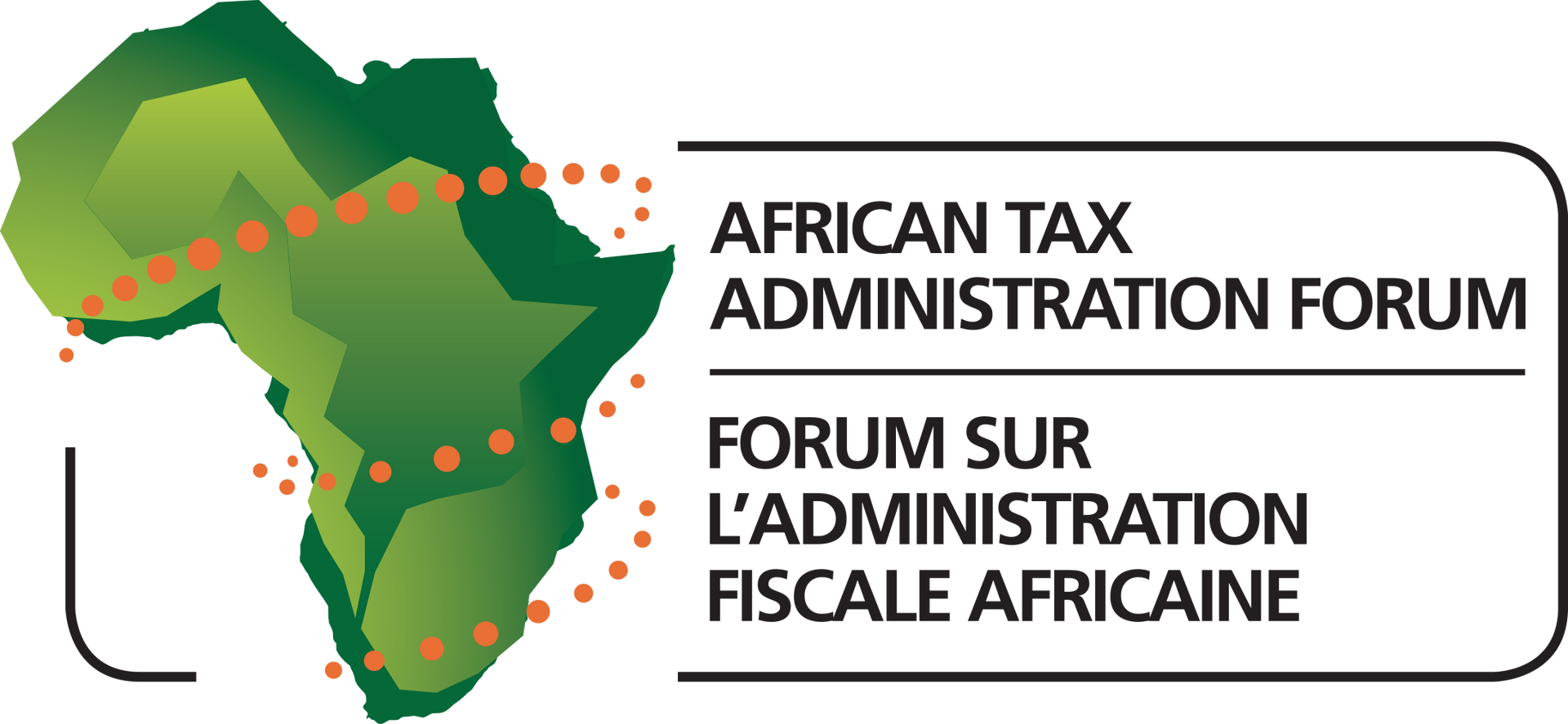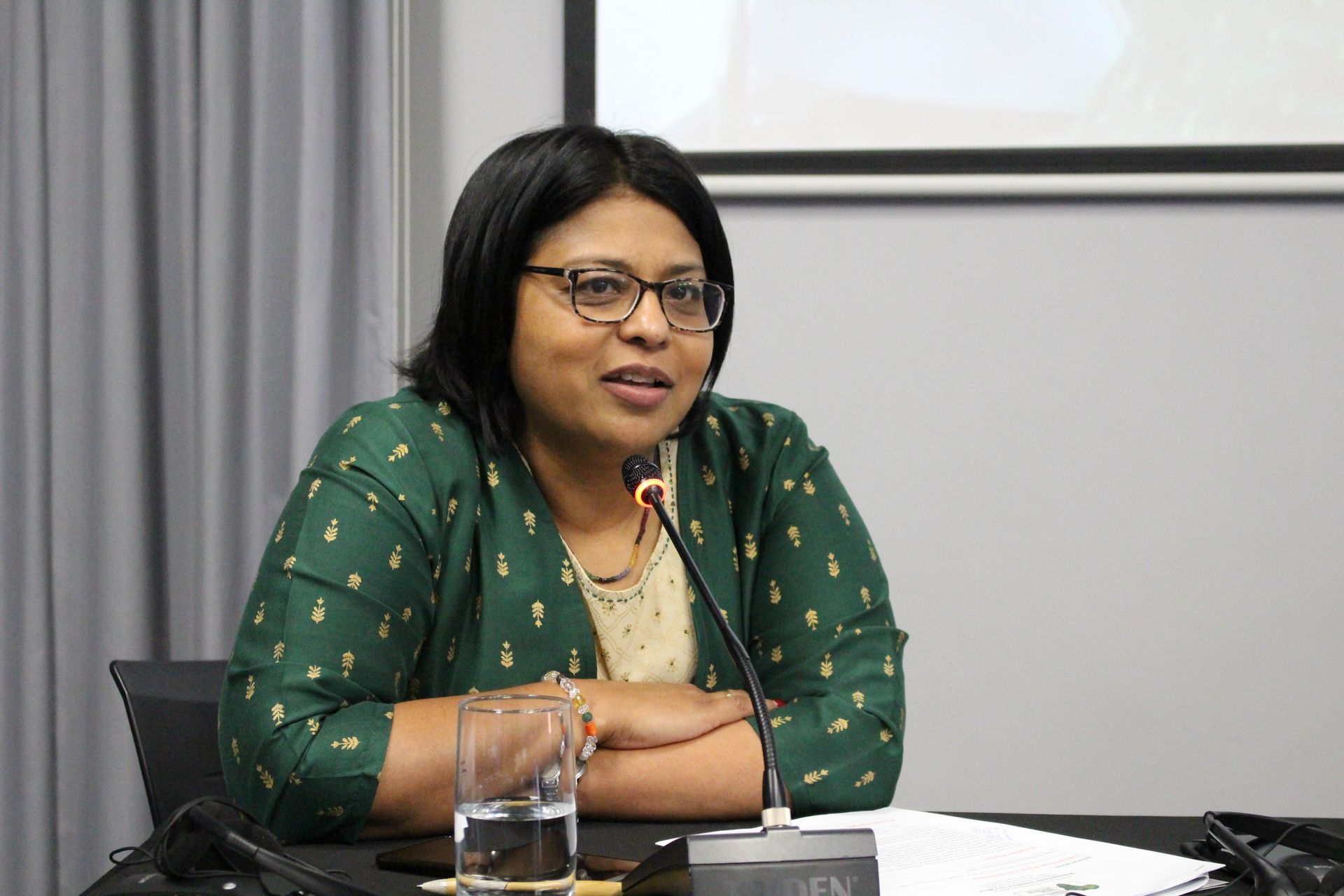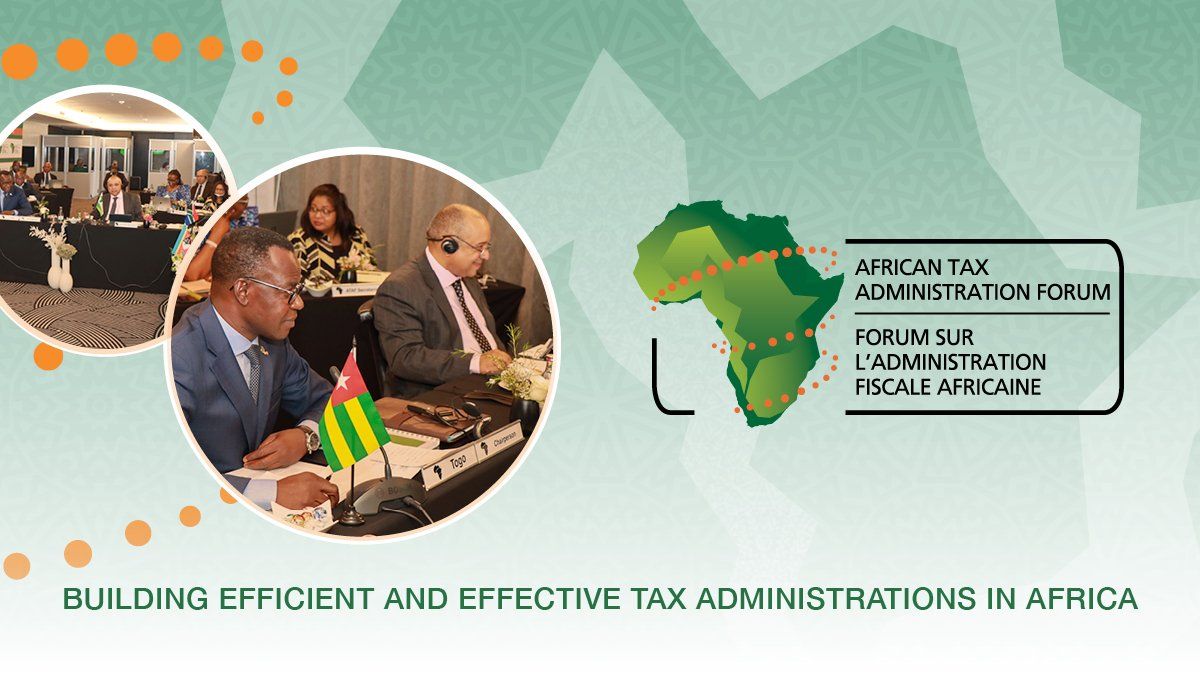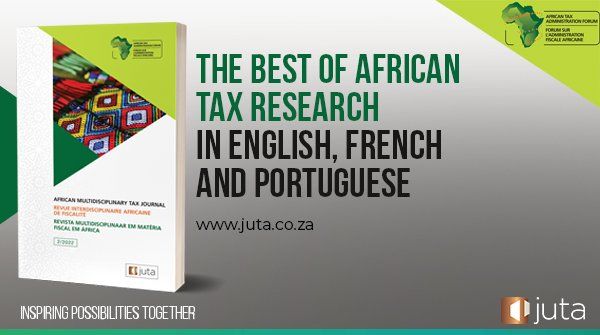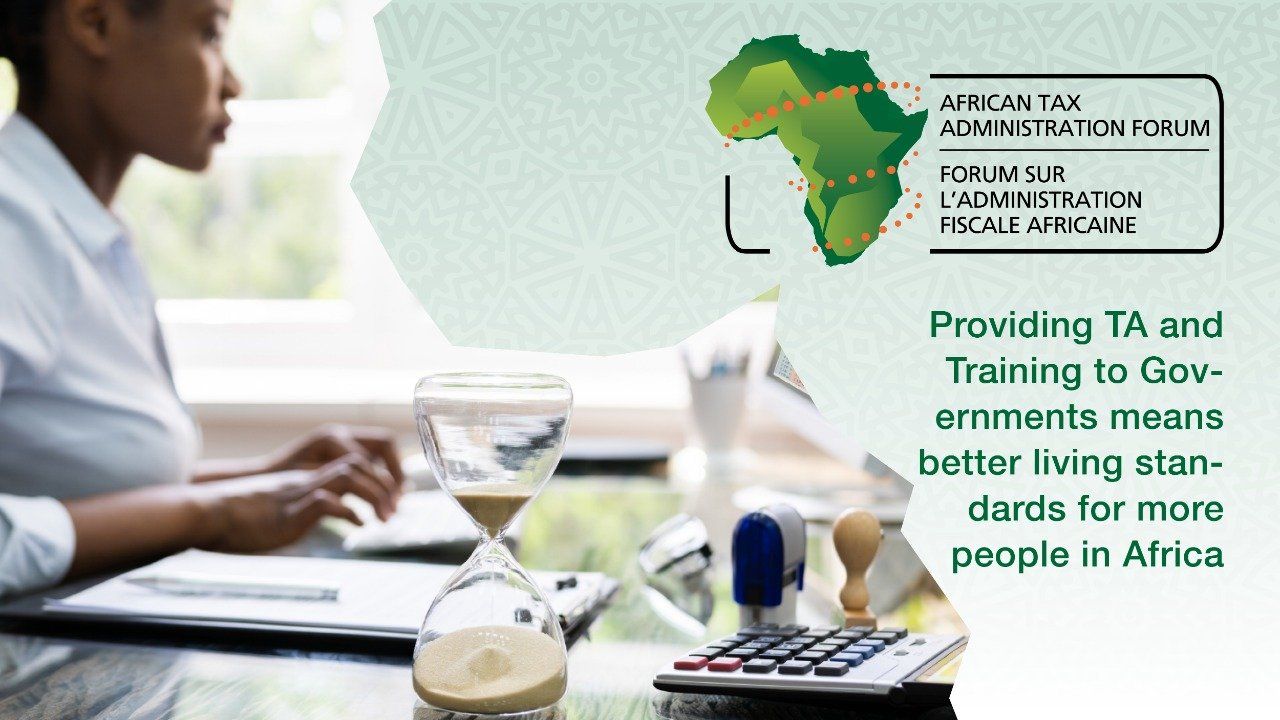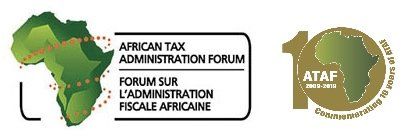BLOG
ATAF NEWS
MEDIA RELEASES
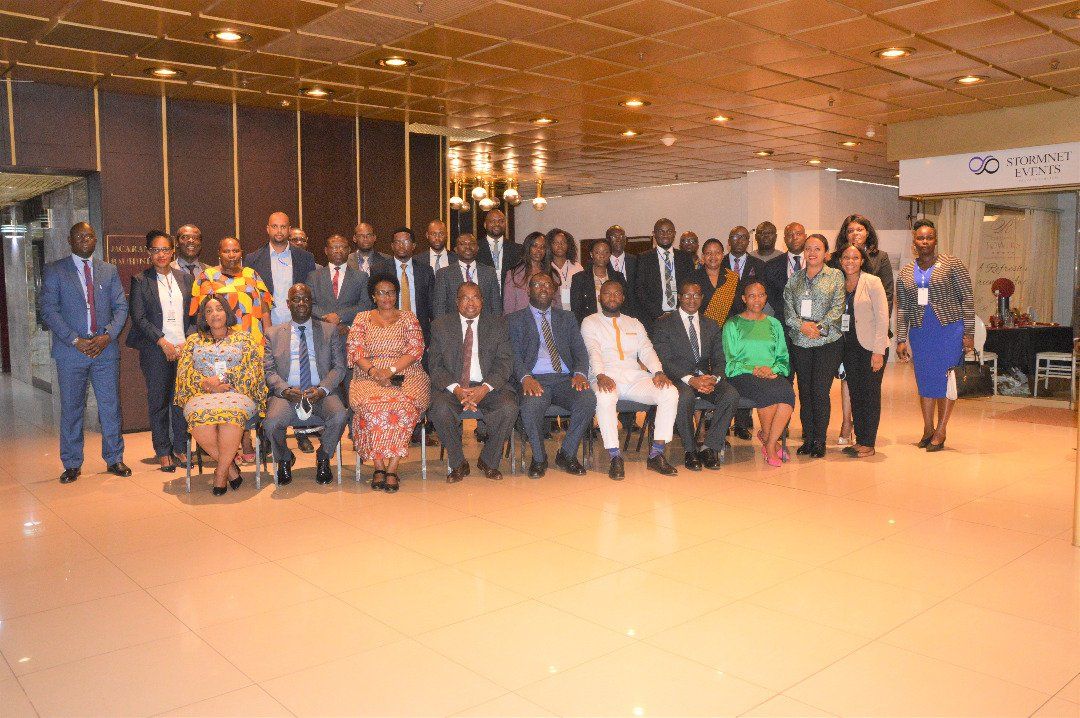
By ATAF Communication
•
08 Apr, 2022
The 1 st Sub-Committee on Tax and Illicit Finical Flows of the African Union’s Specialised Technical Committee on Finance, Monetary Affairs, Economic Planning and Integration began by highlighting the need for African countries to continue striving for improved Domestic Resource Mobilisation.
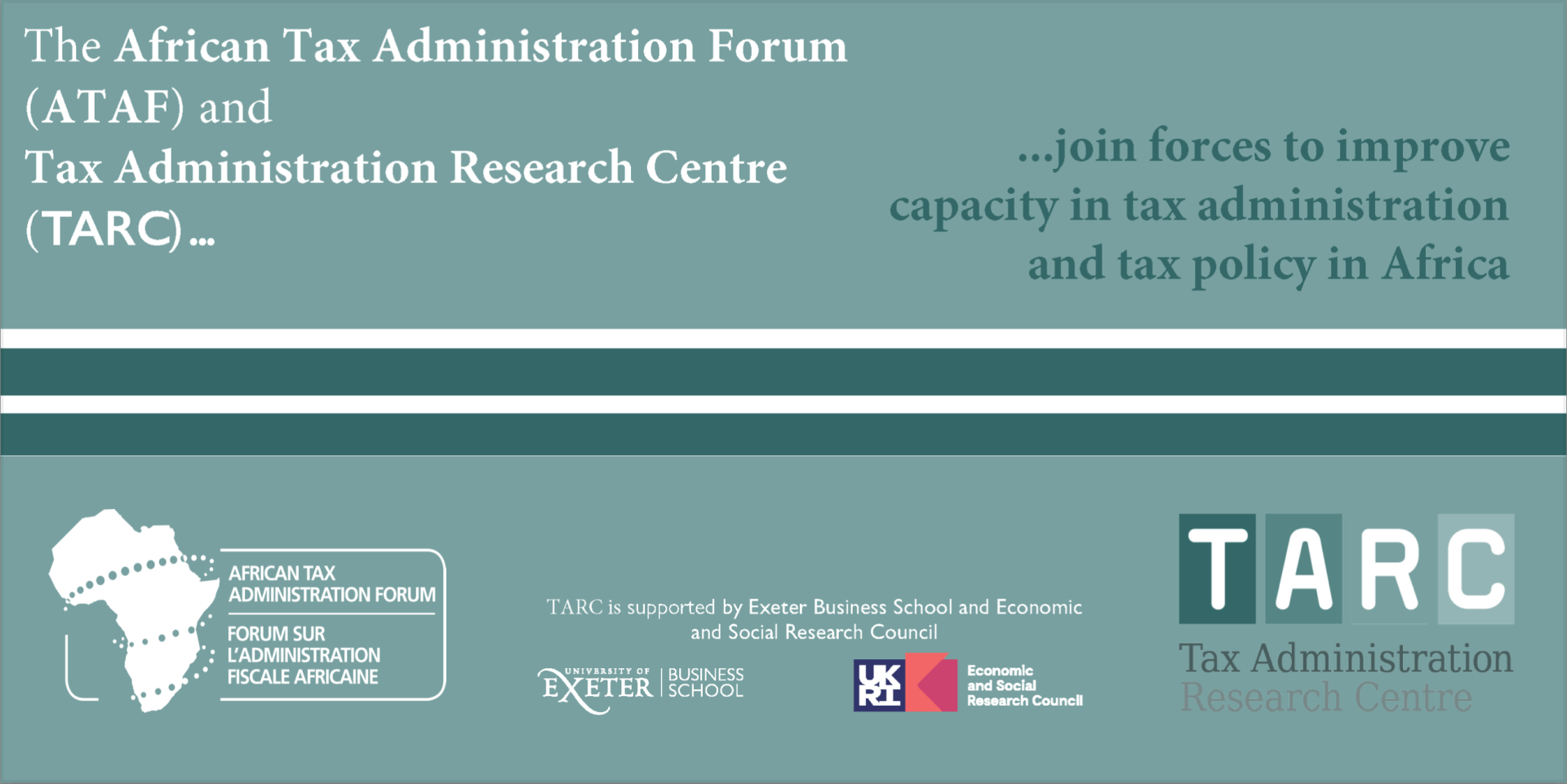
By ATAF Communication
•
15 Dec, 2021
PRETORIA - We are delighted to announce that the African Tax Administration Forum (ATAF) and the Tax Administration Research Centre (TARC, University of Exeter Business School, UK), have signed a three-year Memorandum of Understanding (MoU). The MoU establishes a working relationship between ATAF and TARC, where the two institutions will work together towards developing several collaborative activities to support the key principle guiding this cooperation: a shared desire to improve tax systems in Africa. ATAF is an international organisation established in 2009 serving as an African network which aims to improve tax systems in Africa, increase accountability of the State to its citizen, enhance domestic resource mobilisation and thereby foster inclusive economic growth. The tax administrations of 40 countries in Africa are members of ATAF, i.e., 74 percent of tax administrations on the continent, making it the premier body on tax matters on the continent. TARC is a publicly funded Research Centre founded in 2013, with the mission to deliver outstanding interdisciplinary research in tax and tax administration and policy, that addresses the major challenges and strategic priorities confronting policymakers and tax authorities across the world. ATAF and TARC recognise that tax administrations face unprecedented challenges in what they do and that there is significant benefit to society from sharing expertise and operational, practical, and scientific knowledge. ATAF and TARC are committed to working towards improving the understanding of policymakers and practitioners in tax authorities of how tax systems can be enhanced, to meet the overarching strategic goal of maximising domestic resource mobilisation on the continent. In the words of Professor Christos Kotsogiannis, Director of the Tax Administration Research Centre: ‘Collaborative knowledge production constitutes the only viable strategy in the face of the challenges presented to society. The bold ambition of the collaboration with ATAF is not only to identify those challenges but, importantly, to propose viable solutions that address them, thereby improving much needed revenue mobilization in Africa.’ As ATAF further pursues its goal of serving African tax administrations, it recognises the key role of collaborations with like-minded organisations to remove duplication and consolidate efforts aimed at building efficient and effective tax administrations. The collaboration with TARC will significantly contribute to achieving ATAF’s mission through improved knowledge exchanges, capacity development and technical assistance.
TAX RESEARCH BRIEFS

By ATAF Communication
•
16 May, 2022
Cet article est également disponible en français Este artigo também está disponível em português Written by: Ezera Madzivanyika ATAF Manager: Research and Statistics and Viola Tarus (IGF) Demand for the minerals needed to fuel the low-carbon energy transition presents a timely moment for resource-rich developing countries to increase their revenues while helping combat climate change. The clean energy technologies for such a transformation will require an estimated global production increase of up to 500% for critical minerals like copper, graphite, and lithium by 2050. These resources are abundant in many developing countries . To fully benefit from this spike in demand, countries are already updating their fiscal frameworks, and we expect to see more countries amending their benefit-sharing frameworks to increase their resource revenues. To advance important policy developments for member countries, the African Tax Administration Forum (ATAF) and the Intergovernmental Forum on Mining, Minerals, Metals and Sustainable Development (IGF) launched the Future of Resource Taxation in 2020. The initiative brings together government and non-government stakeholders to exchange ideas on how the current system of mining taxation can be improved, as well as alternative options available to resource-rich countries to maximize the returns from their mineral wealth. Between August and September 2021, we conducted a survey of government officials working in ministries of mines and finance, as well as audit institutions and tax authorities. Below we share survey results and analysis that provide insights into the fiscal objectives of mining countries and challenges to mining revenue collection. A total of 97 officials from 49 countries in Africa, Asia, and South America responded to the survey. Main Objectives of Mining Fiscal Regimes
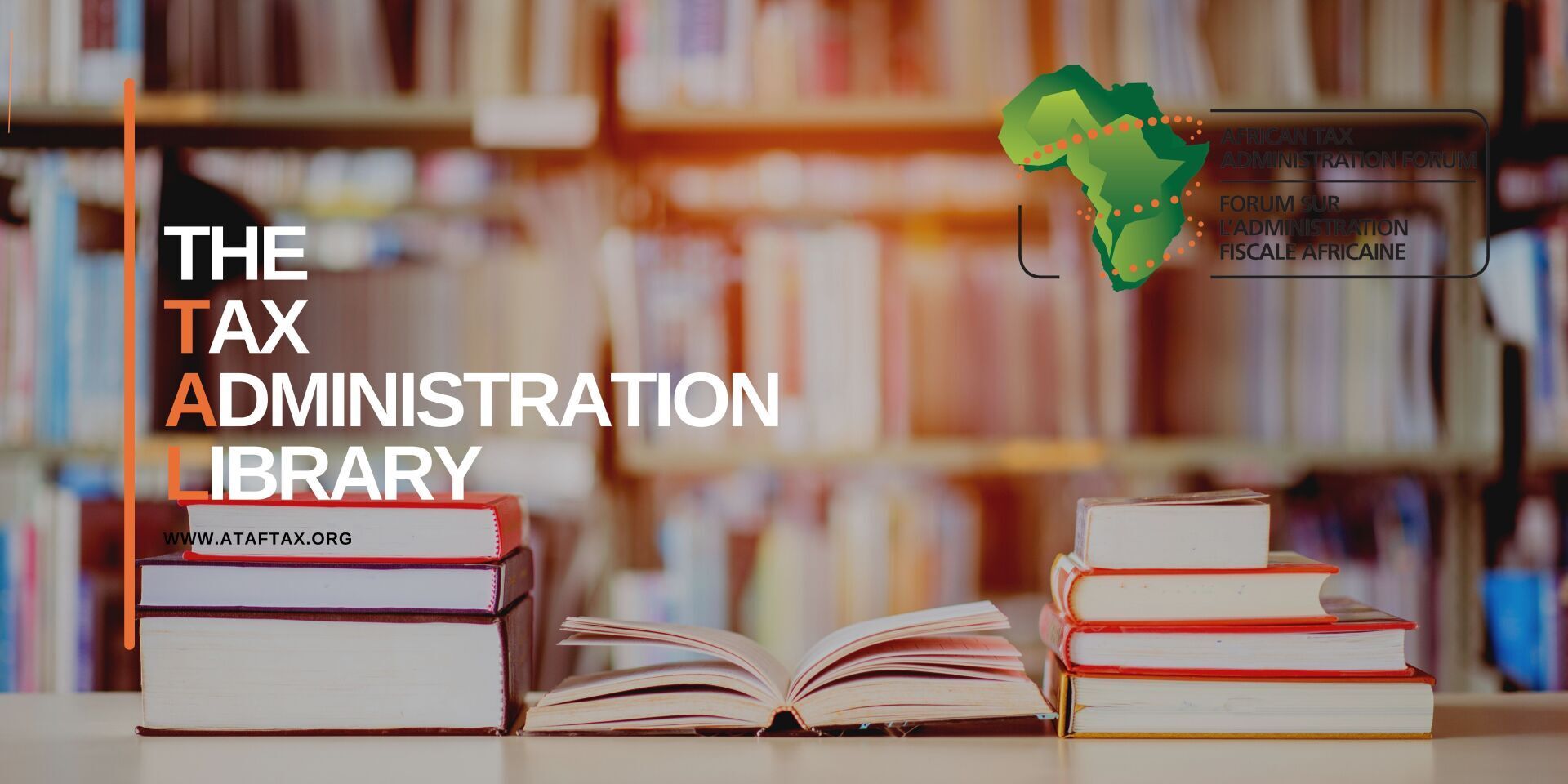
By Frank Kalizinje
•
31 Jan, 2022
Building tax administration capacity is needed to stimulate development in terms of job creation, functioning roads and hospitals and improve education systems on the continent. The Tax Administration Library (TAL), therefore, aims to serve as a central repository of home-grown knowledge and experience on African tax administration and tax policy which will become a valuable resource for its members and other stakeholders. By having access to information from other ATAF member states, African tax administrations can learn from their peers about the good practices, successful reforms and policy initiatives they have implemented and leverage these in seeking to improve tax systems in their own countries. The TAL aims to serve as a central repository of home-grown knowledge and experience on African tax administration and tax policy which will become a valuable resource for its members and other stakeholders.
ILLICIT FINANCIAL FLOWS

By ATAF Communication
•
08 Apr, 2022
The 1 st Sub-Committee on Tax and Illicit Finical Flows of the African Union’s Specialised Technical Committee on Finance, Monetary Affairs, Economic Planning and Integration began by highlighting the need for African countries to continue striving for improved Domestic Resource Mobilisation.
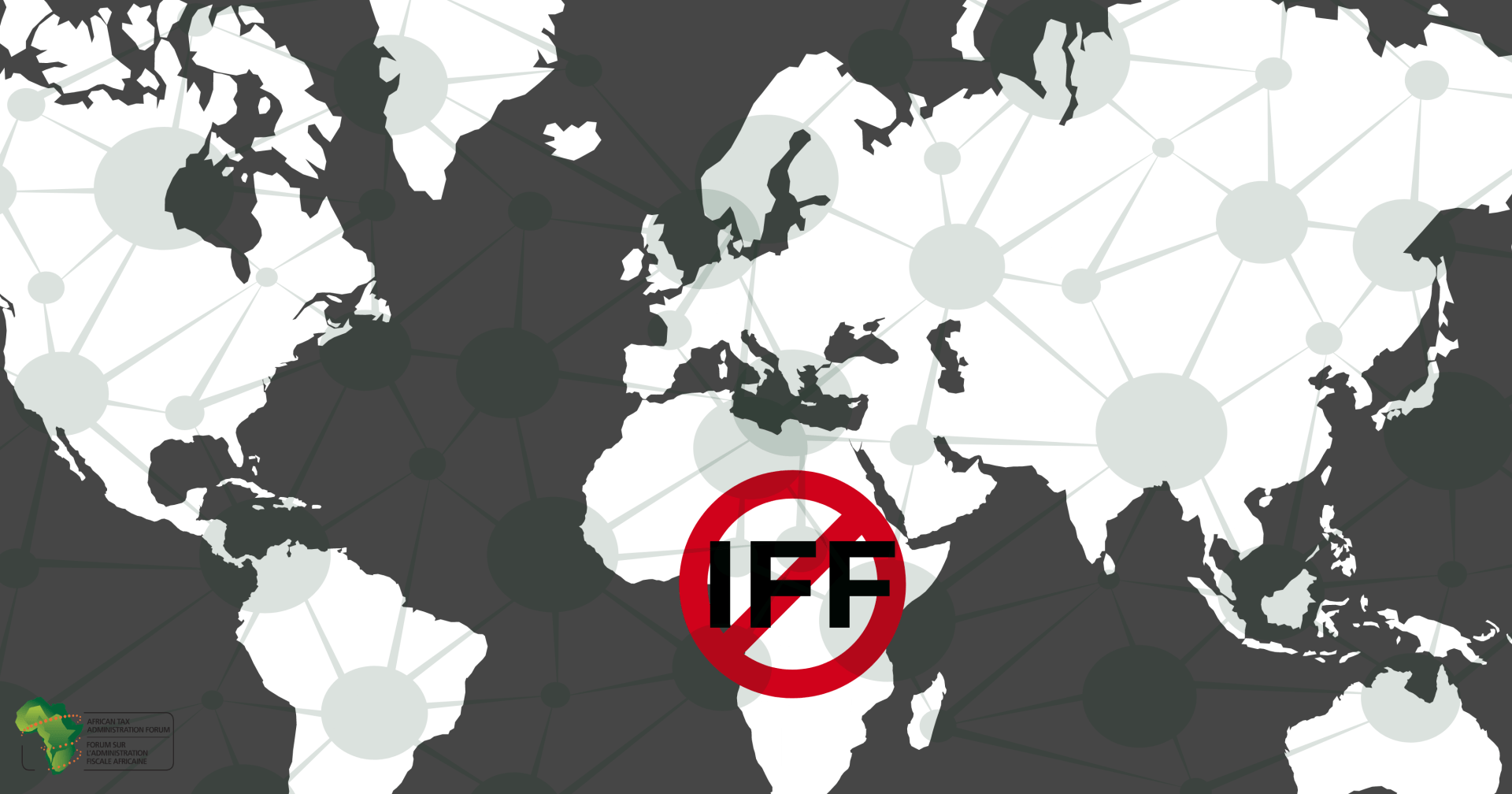
07 Jun, 2020
Au cours des trois derniers jours, 125 participants de 18 pays membres africains (Afrique du sud, Angola, Burkina Faso, Eswatini, Ghana, Kenya, Liberia, Malawi, Maurice, Maroc, Nigeria, Ouganda, Rwanda, Tanzanie, Togo, Tunisie, Zambie, Zimbabwe) ont pris part à l’atelier virtuel conjoint ATAF-OCDE-CEA-IDEP d’une durée de 3 jours, consacré à la lutte contre les flux financiers illicites. Chaque année, d’énormes sommes d’argent sont transférées hors des pays en développement, aussi bien de manière légale qu’illicite. Bien que les débats sur l’envergure des Flux Financiers Illicites (FFI) se poursuivent, il existe un consensus selon lequel leur montant est bien supérieur à celui de l’aide pour le développement (APD) et à celui de l’investissement direct à l’étranger (IDE). L’ODD 16.4 engage les pays à réduire les FFI. De gros efforts ont été consentis en matière le développement d’outils nouveaux et d’approches destinées à examiner certaines des composantes des FFI, mais des défis demeurent quant à leur mise en application. Cet atelier s’est penché sur la progression de l’échange de renseignements, des prix de transfert, de la fausse facturation en matière commerciale, et sur la coopération inter-agences et la coordination. Le rapport Mbeki a attiré l’attention sur les questions liées aux FFI qui affectent le continent africain. Dans ce contexte, les ODD des Nations Unies et l’agenda 2063 pour l’Afrique ont souligné la réduction des FFI comme étant un objectif clé de la poursuite de la mobilisation des ressources intérieures et de la progression du développement durable. L’atelier a été présenté en introduction par le Professeur Annet Oguttu, de l’université de Pretoria, en Afrique du sud, South Africa, membre du Groupe de haut niveau sur la responsabilité, la transparence et l’intégrité financières (FACTI) et membre du Conseil du réseau africain de recherche fiscale, basé au sein de l’ATAF. Lors de son discours liminaire à cet atelier, elle a « souligné que l’Afrique avait la pleine maîtrise de la campagne de lutte contre les FFI, des préoccupations mondiales autour des FFI, des mesures mises en place et celles qui sont en discussion, ainsi que la nécessité de développer des mécanismes et la capacité de l’Afrique à lutter contre les FFI ». Ainsi qu’indiqué dans les remarques préliminaires, la Commission économique pour l’Afrique, (CEA) a montré que les répercussions sur les économies africaines pourraient représenter un ralentissement de la croissance de 1.8 % dans le meilleur des cas ou une contraction de 2.6% dans le pire des cas ; ce qui aurait pour conséquence de précipiter 27 millions de personnes dans une pauvreté extrême. Lutter contre les FFI pourrait contribuer à soutenir la relance économique et à combattre la pauvreté. Les participants ont été formés grâce à des sessions de formation virtuelles interactives, des études de cas et des modules d’apprentissage de l’OCDE avant de participer à la classe. L’atelier a fait apparaître un important besoin de renforcement des capacités dans les pays membres africains, destiné à aider les pays à créer et mettre en place des mécanismes et des mesures de lutte contre les FFI. C’est pourquoi l’ATAF, l’OCDE, le CEA et l’IDEP se sont engagés à soutenir les pays africains à développer les compétences nécessaires pour contrer les FFI et poursuivront les activités de formation et de renforcement des capacités. Plus de renseignements : ATAF www.ataftax.org OCDE www.oecd.org/tax CEA www.uneca.org IDEP www.uneca.org/idep/
CROSSBORDER TAXATION & DIGITALISATION
TAX ADMINISTRATIONS’ RESPONSES TO COVID-19
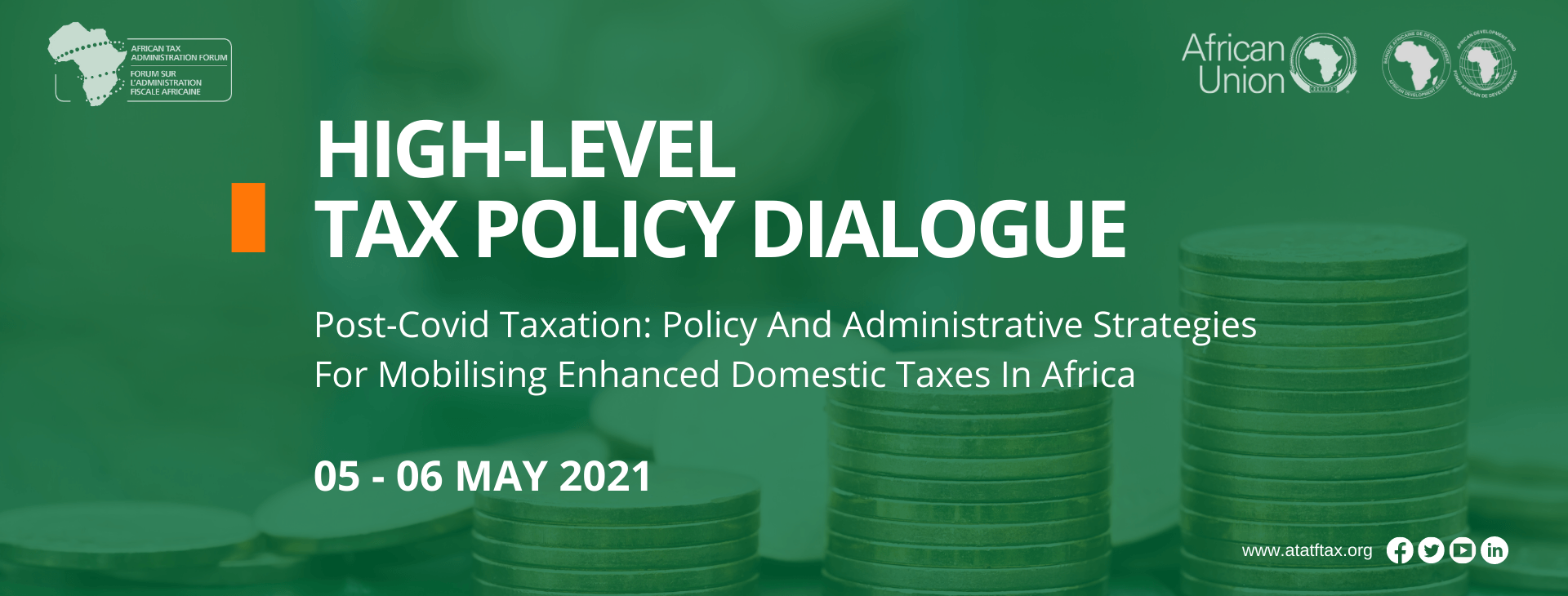
By African Tax Administration Forum
•
30 Apr, 2021
ATAF, AU lead economic recovery discussions for African countries PRETORIA – The African Tax Administration Forum (ATAF) in collaboration with the African Union (AU) and African Development Bank (AfDB) is gearing up for the 5th High-Level Tax Policy Dialogue, with the theme ‘Post-Covid Taxation: Policy and Administrative Strategies for Mobilising Enhanced Domestic Taxes in Africa.’ The effects of the COVID-19 pandemic continue to be felt around the African continent. The pandemic adversely impacted Domestic Revenue Mobilisation (DRM) in Africa. HOW AND WHEN WILL THE CONFERENCE TAKE PLACE? The virtual tax dialogue will take place from 5-6 May 2021. Participants can register by following this link: https://bit.ly/3niHuDs . SOME OF THE ISSUES TO BE DISCUSSED: What are some of the best practices in terms of indirect tax measures that have facilitated the containment and mitigation of the impact of COVID-19? What measures can African countries put in place in order to pave the way towards economic recovery and growth post COVID-19? The role of indirect tax policy and administration in mitigating the socio-economic impact of the COVID-19 pandemic. A balanced approach to tax policy and administration for economic stabilisation. Assessing and improving the performance of tax systems. OBJECTIVES OF THE DIALOGUE: To create a platform for tax policymakers and tax administration officials on the continent to collaborate, on improving tax policy decisions that will impact DRM efforts. Improving African tax systems by sharing ideas, innovations and strategies successfully implemented in other jurisdictions. Enhancing the capacity of tax officials on the continent through interactions through conferences, networking, policy papers and one-on-one collaborations. Applying the science model to tax policies and administration. To assess and improve the performance of tax systems. Proffering solutions and sharing ideas on DRM strategies and initiatives, especially post-COVID-19 crisis. The virtual conference promises to bring together tax policymakers, tax administrators, development partners, tax experts, academics, CSOs and research organization.
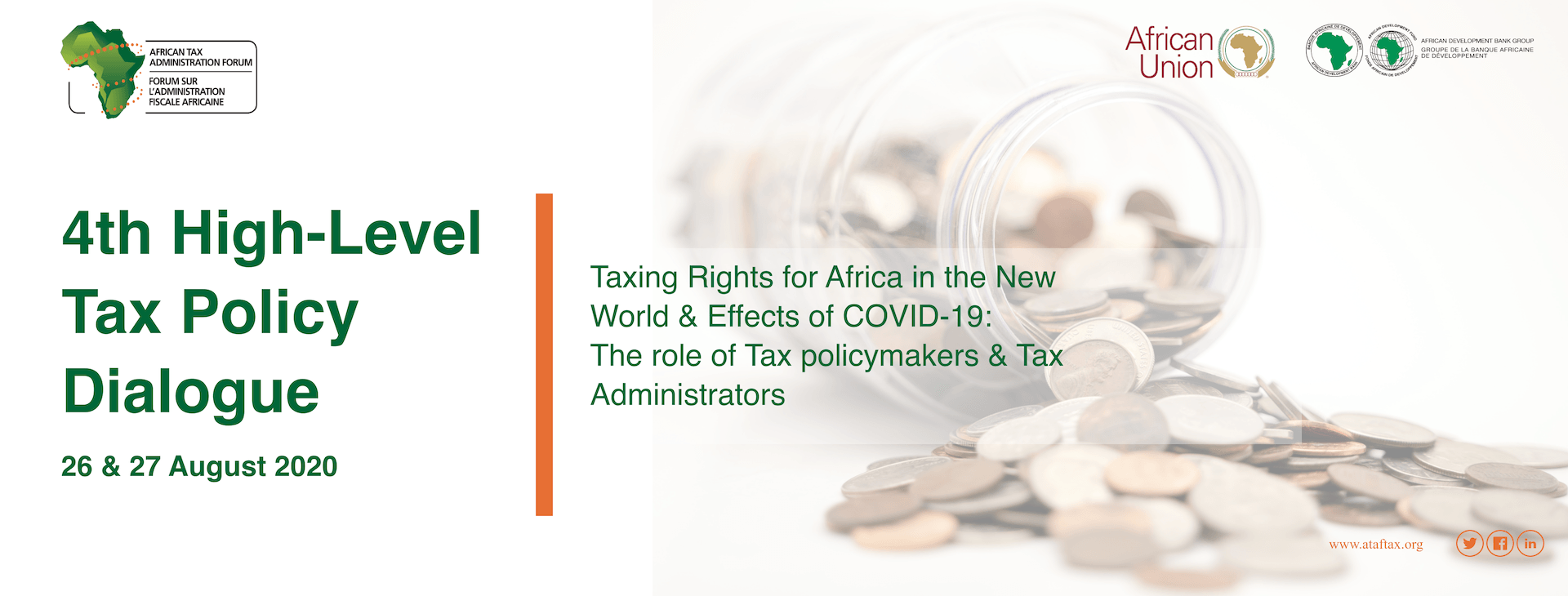
By African Tax Administration Forum
•
25 Aug, 2020
The COVID-19 pandemic has brought to the fore, the focus on the rapidly growing shift to a digitalised economy across the globe. The social and economic lockdowns imposed by government worldwide has pushed many individuals and companies onto online platforms to conduct their business. While other sectors of the economy have come to a standstill, the digital sector has boomed. This has huge implications for business models going forward and makes it even more urgent that solutions be found for the taxation of the digital economy that is equitable for source and market jurisdictions. These two very important issues, which will have a significant effect on revenue collections in the foreseeable future, will be at the centre of deliberations when African tax officials and policymakers meet virtually on the 26th and 27th August 2020 at the High-Level Policy Dialogue. Now in its fourth edition, the dialogue brings together African tax policymakers and tax administration officials to discuss crucial tax issues impacting the continent. This year’s dialogue is being jointly organised by the African Tax Administration Forum and the African Union Commission and is being supported by the African Development Bank. The unprecedented COVID-19 pandemic has demonstrated the inter-linkages between the world’s economies and trade supply chains and has further revealed the structural weaknesses and vulnerabilities in the economies, social and health systems between and within countries. It has disrupted societies and devastated economies throughout the world. Governments have implemented unprecedented lockdowns to curtail the spread of the pandemic; global economic activity has plummeted, resulting in a worldwide recession, reduced tax revenues and increased unemployment. Africa has not been spared, albeit that the COVID-19 pandemic hit the continent later than other regions of the world and has seemingly been not as severe in terms of infections and mortality rates. The impact on African economies has been severe. International and intra-African trade has been drastically reduced as a result of lockdowns, movement restrictions and closure of borders and airports. According to the African Union Commission, Africa’s GDP growth is projected to contract by between -4.9% and -2.1% in 2020, which would lead to a reduction of between US$135 billion and US$204 billion from pre-COVID–19 GDP of $2.59 trillion. The crisis has also increased poverty with the African Development Bank, estimating that COVID-19 pandemic will push between 28.2 million and 49.2 million more Africans into extreme poverty. The contracting economies are expected to translate into weaker fiscal positions for governments across the continent at a time of maximum need. Not only will the impact of the pandemic adversely impact Domestic Resource Mobilisation (DRM) efforts, it will also likely lead to a reduction in overseas development assistance as donor countries face their own cash crunch in the midst of economic turmoil. Already African countries are reporting a reduction in tax revenues, especially from the non-digitalised sectors. The decline in the prices and demand for commodities and the impact of the pandemic of the travel and tourism sectors, which African countries mainly depend on for tax revenues, has led to significant loss of revenue losses. In the light of this crisis, it is imperative that African policymakers respond with heightened urgency to the issues raised by the impact of the COVID-19 pandemic on African economies and take a closer look at the proposals for the taxation of the digital economy and their likely implications for revenue collection for the continent’s states. African countries must rethink their economic and fiscal policies to ensure that the recovery after COVID-19 is faster, with a more significant impact on the lives of their citizens. Regarding tax policy and tax administration measures, now more than ever it is critical that tax practitioners on the continent collaborate and pursue tax measures to shore up revenue that will foster economic development and bridge the gap that will arise due to a reduction in aid. On the table as a source of untapped revenue must be businesses in the digital economy who have a significant economic presence in African countries and benefit from economic activity but have little obligations to pay tax because they do not have a physical presence in these countries. This has become even more urgent because the COVID-19 the crisis has increased the dependency on digital services as these remain most feasible given the need for social distancing. For example, in the last few months, we have seen a boom in the adoption of video conferencing services such as Zoom and Microsoft Teams. As African citizens continue to acquire more digital services, the growth, expansion and remote presence of digital multinationals in Africa, will continue to impact tax revenues across the continent. The taxation of the digital economy has been a hot topic on the international tax agenda for some years, with a drive towards finding a consensus-based global solution. To this end, through the OECD’s Inclusive Framework on BEPS, 137 countries, of which 25 are African countries, have been working together on proposals to address the tax challenges arising from the digitalised economy. Although some progress has been made, it now seems unlikely that a global consensus will be reached by October 2020 as intended. Although the disruption caused by the COVID-19 crisis has not helped, there are other sticking points, particularly with the United States on binding arbitration and the imposition of interim digital services tax by a number of countries like France and India. African countries too have considered various options on taxing digital services. In recent times, 10 African countries – Kenya, Nigeria, South Africa, Egypt, Tanzania, Mauritius, Uganda, Cameroon, Ghana and Zimbabwe have either implemented or indicated that they plan to implement unilateral direct or indirect tax approaches in taxing the digital economy. For more details and registration for the upcoming 4th High-Level Policy Dialogue, visit https://au.int/en/newsevents/20200826/4th-high-level-tax-policy-dialogue
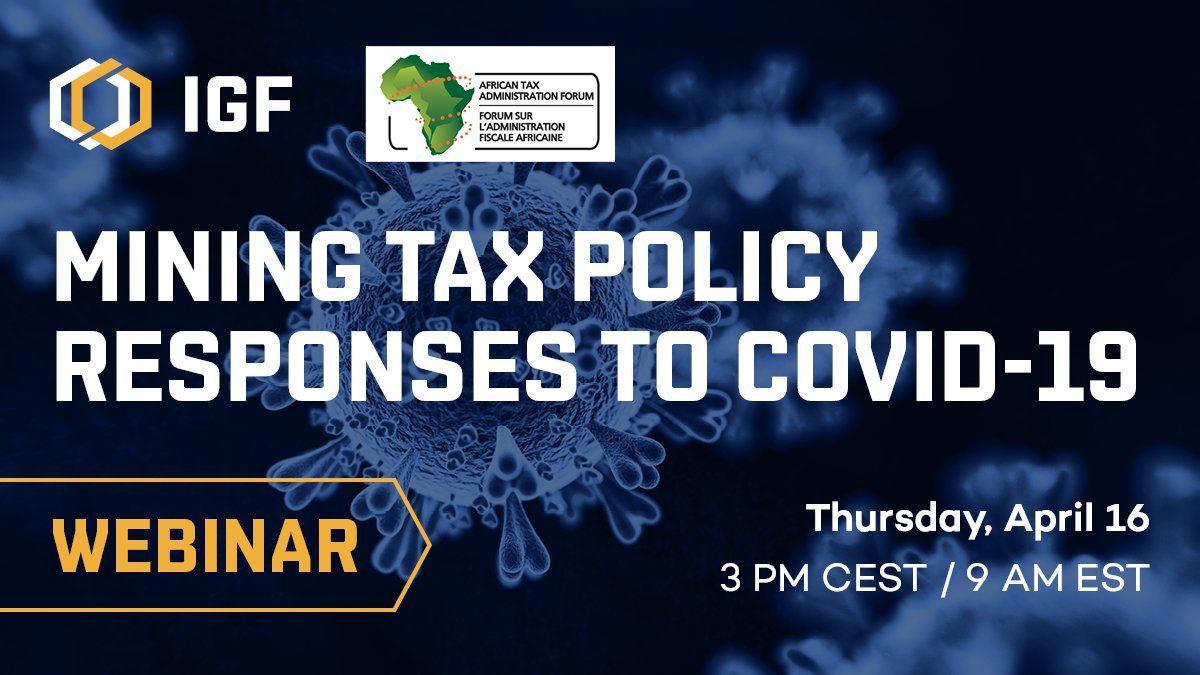
By African Tax Administration Forum
•
04 May, 2020
On April 16, 2020, the Intergovernmental Forum on Mining, Minerals, Metals and Sustainable Development (IGF) and African Tax Administration Forum (ATAF) held a joint webinar on their guidance: Mining Tax Policy Responses to COVID-19 . The panel included Anthony Munanda from ATAF, Alexandra Readhead and Thomas Lassourd from IGF, and three government officials from Colombia (Claudia Escobar Oliver—advisor, Ministry of Mines and Energy), Ghana (Martin Ayisi—Deputy Chief Executive, Minerals Commission) and Zambia (Joseph Nonde—Director of Tax Policy, Ministry of Finance). More than 200 participants joined the webinar to share some of their concerns and experiences. Not all questions could be answered during the webinar, so IGF and ATAF are publishing some brief answers, and, where relevant, links to further reading material here. We hope participants will find these useful, along with the original guidance, presentation slides, and the video recording of the webinar. 1. Impacts on the Mining Sector If uranium prices rise, why do diamond prices tumble? One of our main messages is that each commodity is faring differently depending on the resilience of supply, demand, and any specific factors. Uranium prices are going up because of important supply disruptions, while demand is inelastic. Diamond prices are going down because processing has all but stopped , leaving mines with rough diamonds that they cannot cut and put on the market—and most of the demand for diamonds is very elastic. Have you observed different impacts on different government revenue streams? It is still early to be able to analyze data on government tax and royalty receipts from mining. Countries that publish this information, often through EITI, do so only on an annual basis. But based on how different fiscal tools are designed, and on previous experiences, price drops have a stronger impact on profit-based taxes (such as income taxes, rent taxes, or state equity dividends) and a smaller impact on output-based taxes (such as most mineral royalties, turnover, or local development taxes). Other taxes (including VAT, customs duties, and withholding taxes) would be affected only to the extent that a price decrease leads to cost-cutting measures or reduced economic activity. 2. Conditions for Mining Tax Relief Should mining companies with cases of human rights violations, environmental destruction, and corporate tax abuse be barred from tax relief? Mining companies convicted of human or environmental crimes, or tax abuse should be excluded from tax relief in general. The challenge will be having sufficient proof of wrongdoing to deny tax relief. Some governments are considering barring companies registered in tax havens, based on the risk that they are engaging in tax-avoidance practices. Should mining companies be required to guarantee the health of their workers in order to continue to operate during quarantine? Should any health expenses incurred be eligible for deduction against income tax, like a social responsibility expense? First and foremost, mining companies should protect the health of their workers. Regarding any costs incurred in protecting the health of workers, affected mining communities and host countries should be eligible for immediate deduction or tax credit. Governments could also consider “Work for Taxes” schemes that allow companies to pay their corporate income tax (CIT) in advance through the execution of public works projects such as hospitals. Do you think governments will, or should, take into account the mine’s carbon footprint when they are pre-screening eligibility for support? Governments should consider the mine’s carbon footprint to grant tax relief, as they should more generally reward front runners on sustainable development in their economic stimulus packages. Governments could use their response to COVID-19 as an opportunity to assess the corporate energy performance and carbon reductions strategy of each company requesting tax relief. Assessing the level of company compliance might be challenging given time constraints, in which case governments could refer to rankings by the CDP . Even though the gold price has increased, many miners are currently struggling to bring their product to market due to the widespread cancellations of international flights. What are your thoughts on this? Commodity prices are just one factor to determine whether tax relief is required. If a mine is unable to export its product due to circumstances reasonably beyond its control and this causes its cash flows to go negative, it should be considered for tax relief. Governments could also help consolidate orders for bulk shipment, as well as negotiate favourable terms and conditions with the airline(s). What would you suggest in a case where a company has not been able to achieve a cash flow-positive position in the past years but has shown a path to profitability, but can make a strong case that the mine would have to enter care and maintenance unless government were to relieve it of its short-term payment obligations? The answer to this question depends on a deeper appreciation of the causes of negative cash flows. The taxpayer would need to disclose full information to be verified by auditors. If the verification indicates that the losses are caused by operating challenges that are reasonably expected to improve in the near future, then the government may consider providing short-term tax relief. If the verification indicates that the causes of the losses and negative cash flows are related to party transactions and other tax-avoidance schemes, short-term relief should not be granted. Companies entering into these arrangements have sufficient cash flows at the group level to keep their related parties (group members) afloat. Governments in Africa haven’t been benefiting optimally from mining—offering more tax relief could exacerbate poverty on more challenges for Africa. Many African countries have indeed reported that there are limited benefits from mining activities on the continent, although some governments have tried to reform the sector. Thus, countries should carefully evaluate the role of the sector in their economy when designing options for supporting businesses and workers during this crisis. It would generally not be appropriate to provide relief targeting corporate taxes; rather, the benefit should target the workers in the mining companies. The tax relief would be in the form of reduction or suspension of payroll taxes or during the crisis period. 3. Mining Tax Relief Options Should it be made easier to use losses by extending loss carry-forward/back periods or relaxing any ring-fence rules applicable to mining losses? The extractive sector typically already enjoys long loss carry-forward periods. Extending the carry forward of losses would not provide any immediate relief to mining companies in terms of tax savings and further defer future tax payments. Where some projects of the mining company are in profit position and others in tax losses, relaxing ring-fencing rules may allow the mining company to utilize losses in other projects to minimize the taxes payable in the profitable project(s). There should be guardrails to ensure that there is no abuse to this approach by only allowing losses that have been fully audited and any necessary adjustments are made on the same prior to their utilization. Do you view it as necessary to extend any fiscal or other support to sectors supporting mining, for instance, the transport and logistics sector? Businesses that support the mining industry, such as transport and logistics companies, may be negatively affected by mine closures, in which case they may be entitled to tax relief. The same considerations should apply (e.g., negative cash flows precipitated by the impacts of COVID-19, potential layoffs, inability to meet tax obligations), as well as conditions for state support. How can mines on care and maintenance benefit from the adjustments in the tax regime? During a care and maintenance phase, production is stopped but the site is maintained to ensure it is in a safe and stable condition. A company in this position could still benefit from the deferral of payroll taxes for workers required to maintain the mine site; quicker refunds of outstanding VAT payments (where government cash flows allow); and deferral of tax payments for previous financial periods. Could you discuss more about environmental taxes? Governments should refrain from suspending environmental taxes during this period (e.g., taxes on fuel for energy and transport use, and pollution taxes). By putting a price on pollution, tax systems encourage companies to reduce carbon emissions to the lowest possible level. Short-term tax relief should not compromise longer-term environmental goals. We have experienced requests to prepay taxes from time to time as governments face shortfalls. We have not engaged in such practices due to the risks of even greater shortfalls later on (and accumulation of shortfalls). How do you address that? Exceptional times call for exceptional measures. Mining companies should do whatever they can to help host country governments mitigate the economic and health impacts of COVID-19. Companies trading in precious metals are currently generating huge profits. They are in a unique position to be able to prepay taxes and royalties, providing much-needed revenues for governments. While lump sum payments are not the norm, there is precedent for more frequent tax payments (e.g., monthly as opposed to annual CIT payments). 4. Tax Relief for Artisanal and Small-Scale Mining (ASM) For countries with substantial ASM sectors, could you highlight any specific advice or risks? Formal ASM could benefit from tax relief like other mining companies and subject to certain conditions. Governments might want to pay special attention to formal ASM sectors to avoid formal miners returning to informality as a consequence of COVID-19. The challenge will come up for countries with substantial informal ASM sectors, as they often do not pay formal taxes. Other measures could be taken for this subsector during COVID-19, although many challenges are involved around implementation given its informal nature. See, ICTD . While the price of gold has increased tremendously during the COVID-19 period, it has been reported that some people are buying gold too cheaply from the ASM in countries like Burkina Faso. What could be done to halt this abuse? This is a huge problem created mainly by low local prices producing an arbitrage opportunity for buyers who can buy cheaply in one market and sell at an elevated price elsewhere. Government might implement control measures for the gold trading/marketing, giving more transparency to mineral trading activities. Governments might request that the list of agents marketing minerals (buyers and sellers of minerals) should be published. See the Registro Unico de Comercializadores de Minerales (RUCOM) in Colombia as an example. 5. Audit Issues What are the short- and long-term policy recommendations regarding the audit of mining multinational enterprises (MNEs)? Develop and implement a risk-assessment framework. Audit resources may be particularly constrained during the COVID19 pandemic, making it especially important to focus limited resources on high-risk taxpayers. This would reduce the number and frequency of audits. Additionally, only the dedicated team of officers would be required to address the identified risks. This helps reduce the number of auditors conducting audits during this time. Ensure there is a robust domestic law that covers issues of transfer pricing and tax-avoidance schemes. The law could include simplified methods for determining the value of commodities sold to related parties. See ATAF’s suggested approach to transfer pricing legislation. The Inter-American Center of Tax Administrations (CIAT’s) Transfer Pricing Cocktail is also useful in this regard. Ensure that tax treaty provisions are updated and provide sufficient taxing rights to source jurisdictions and strengthen treaty provisions relating to technical fees, royalty and services permanent establishments. A comprehensive definition of a fixed place of business (i.e., permanent establishment) is important for mining e.g., exploration, exploitation, and extraction, among other issues. IGF guidance on tax treaties and the mining sector is forthcoming. Establish a dedicated transfer pricing team. Through technical support to such officers, this team would be able to develop expertise in auditing the MNEs: such skills can be used across different sectors, including the mining sector. Ensure that auditors have access to complete information about the transactions of the local company and the related parties (in cases of MNEs). This should include disclosure by the local mining company of information about the production and pricing of transactions. Governments may consider automating access to production information. Have any countries taken measures related to mergers and acquisitions for companies in the mining sector? It is important for governments to keep track of mergers and acquisitions in the mining sector, as some of these transactions could lead to taxable capital gains on mining assets within their jurisdiction. Many governments tax capital gains on both direct and indirect transfers of immovable property, including hydrocarbon and mining rights. There are different ways for governments to establish such taxes, described in this latest draft of the platform for collaboration on tax’s toolkit (also in a video presentation). Governments should design these provisions carefully and ensure that bilateral tax treaties and mining conventions do not create any loopholes. 6. Future-Proofing Mining Fiscal Regimes] Considering the uncertainty of both commodity prices, should there be automatic triggers for some of the incentives here? Automatic triggers are an interesting suggestion, although they would need to be designed within each country based on local conditions and factors. In our note , we suggest a number of screening factors that could be turned into automatic triggers for some short-term relief measures. Would a more sustainable option be progressive royalties? Progressive royalties do provide some adjustments to mineral prices that can help make a fiscal regime more resilient. For instance, many countries in West Africa have adopted progressive royalties on gold over the last few years, which is proving useful at this time of increasing gold prices. But the impact of progressive royalties on companies’ bottom lines in times of low prices depends on how they are calibrated. In the face of a very large and sudden economic shock, such as the current global pandemic, companies might find only limited relief in the automatic downward adjustment of the progressive royalty rate based on lower mineral (e.g., copper) prices. Our advice at this time would be to design targeted, short-term measures to help those companies in financial distress to weather the crisis. Do you have any advice for countries that are considering tax increases on the sector at this time? People always have a bias toward the present moment. Thus, during an economic recession, there is a risk that tax revisions get based too much on pessimistic future forecasts. Government should take time and consideration before designing any tax increase. In the next two years, ATAF and IGF will develop additional guidance and new ideas on how to improve mining taxation regimes for governments considering fiscal regime changes. Regarding the specific case of companies faring particularly well in 2020 (such as several gold companies) governments could design other mechanisms to help fund national measures to fight the pandemic and weather the global economic recession, including advance payments of CIT, a special COVID 19 contribution, or temporary royalty increase.
DOMESTIC RESOURCE MOBILISATION
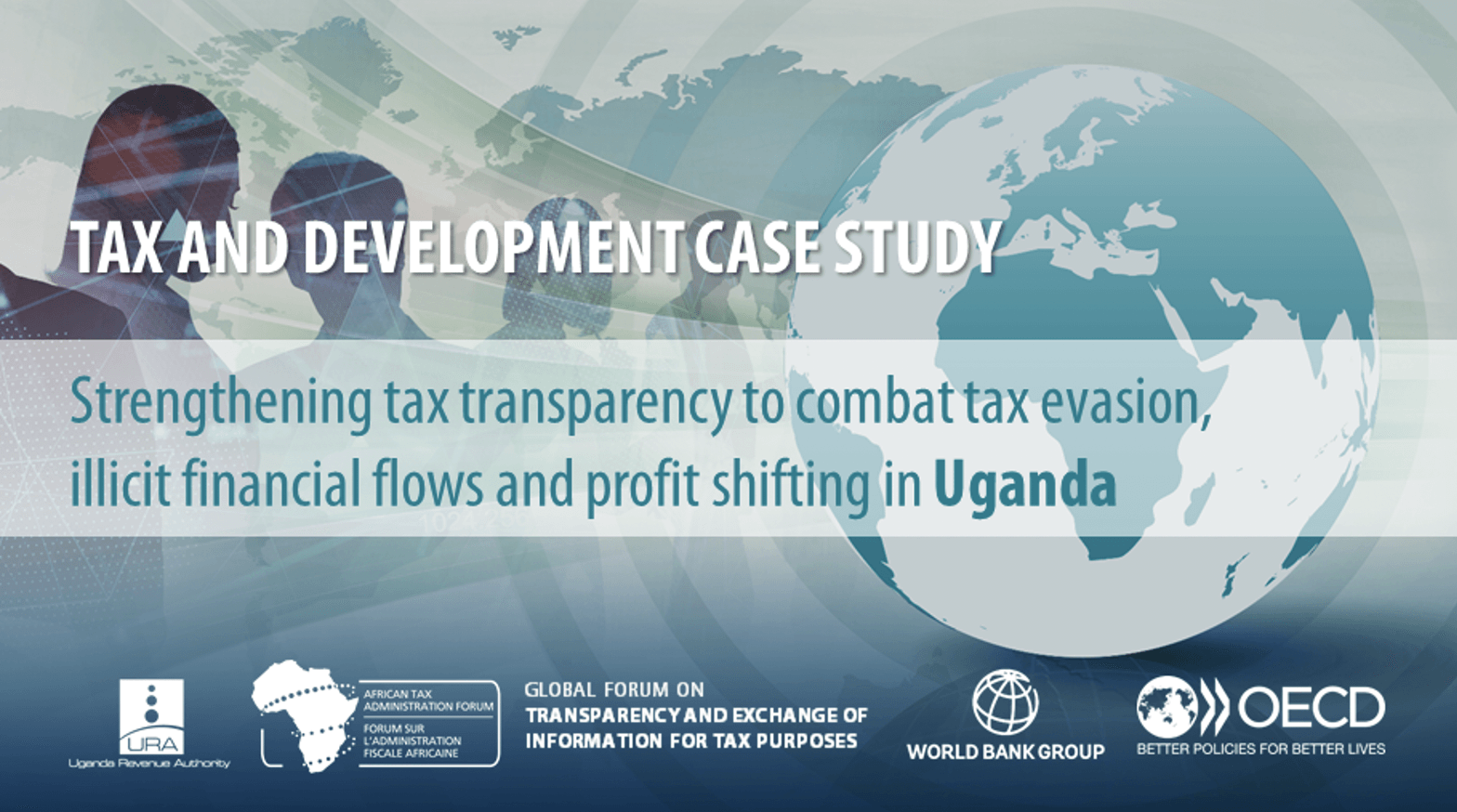
By African Tax Administration Forum
•
16 Apr, 2021
Uganda has significantly strengthened its tax transparency and tax capacity in just a few
years to mobilise more domestic resources to finance sustainable development. Moreover,
the country has taken significant steps to tackle illicit financial flows by implementing
global transparency and information exchange standards.
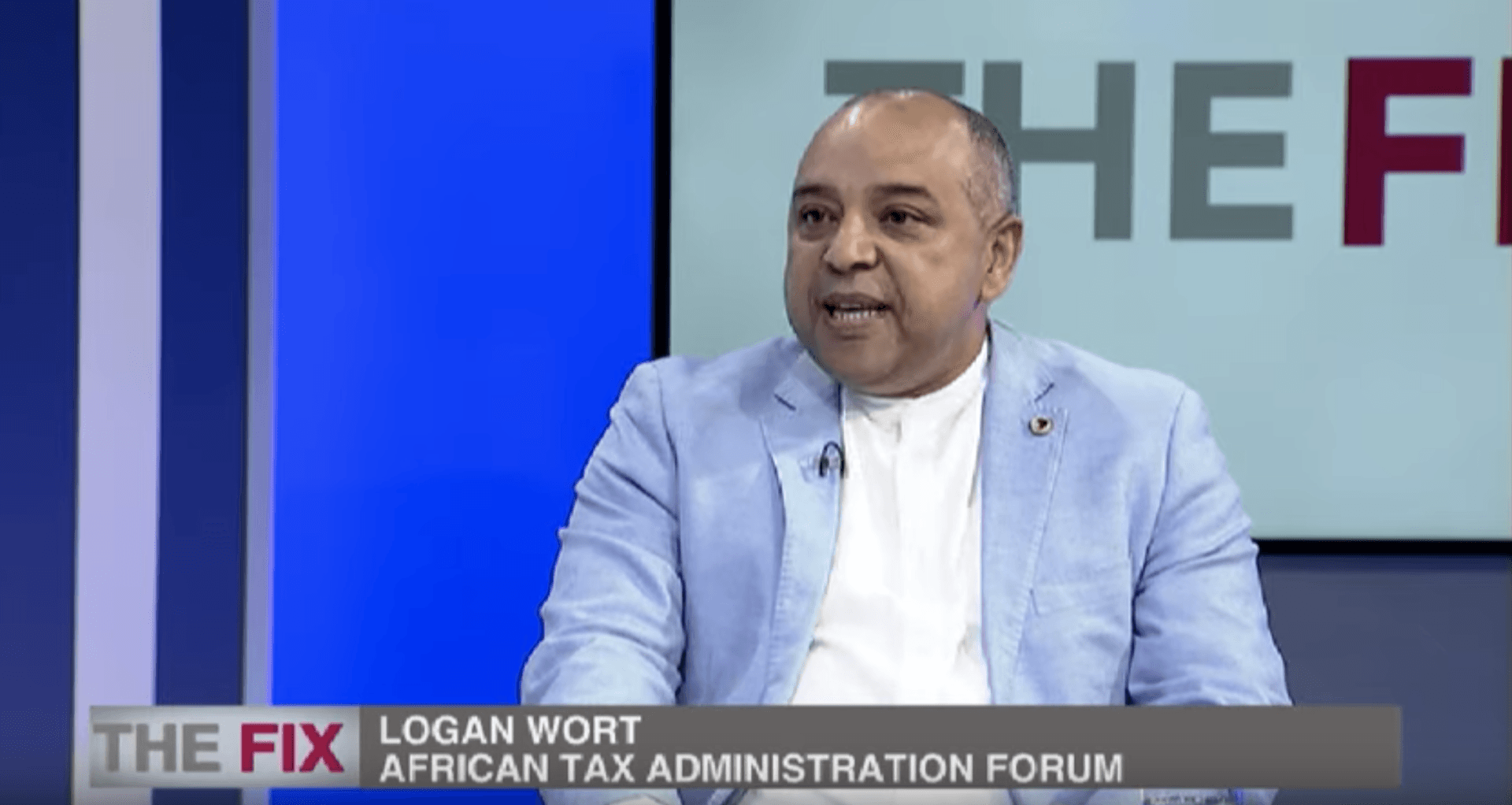
By African Tax Admnistration Forum
•
30 Sep, 2019
Watch the Executive Secretary of African Tax Administration Forum @LoganWort discuss African Tax Administration Forum's work in capacitating tax administrations to increase Domestic Resource Mobilisation in Africa on #TheFix #DStv403 https://bit.ly/2mS1NfU
10 YEARS OF ATAF
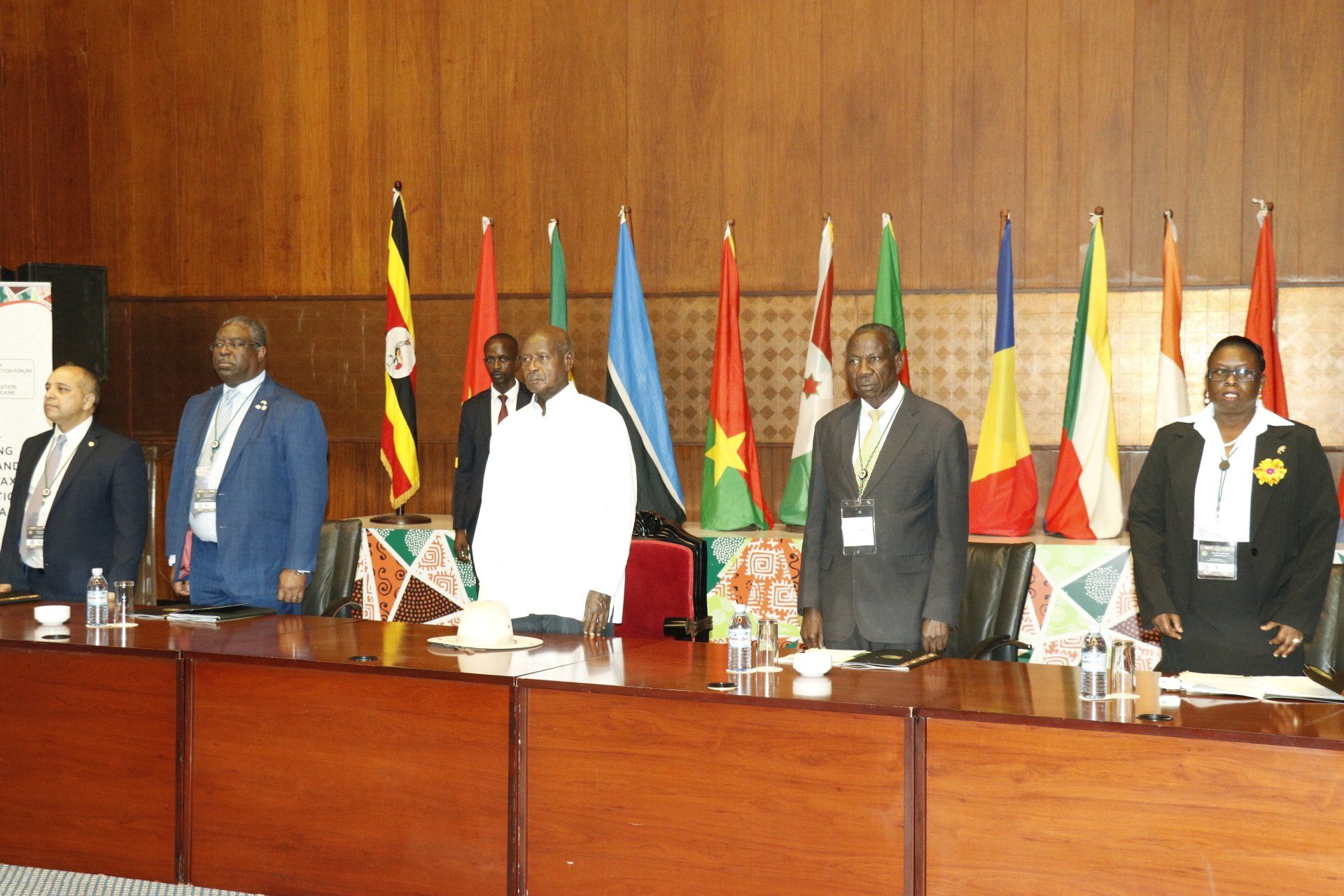
By African Tax Administration Forum
•
20 Nov, 2019
November 19, 2019, Kampala, Uganda - Over 450 representatives of Tax Administrations, Ministries of Finance, Private Sector firms, Tax Researchers, Media and Civil Society organisations from 24 different countries met in Kampala, Uganda today at the 4th International Conference on Tax in Africa (ICTA). The event was officially launched by H.E. Yoweri Museveni, the President of the Republic of Uganda.
CONTACT
14 Hilden Road (off Daventry Road),
Kaaimans Building,
3rd Floor, Lynnwood,
Pretoria, South Africa
Copyright © 2022 African Tax Administration Forum - All Rights Reserved

